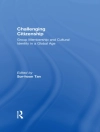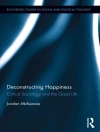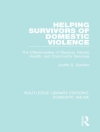An ideal short text for social problems, social change, or a sociology of work course, this book provides a sociological understanding of the transition from industrial capitalism to post-industrial, flexible, global capitalism in American society in a way that is meaningful and insightful to undergraduates.
Tabla de materias
PART ONE: SOCIAL CHANGE IN THE TWENTIETH CENTURY
Society in Transition
The American Dream
Accord in the Post-World War II Era
End of a Century, End of an Era
Implications
PART TWO: FROM INDUSTRIAL ECONOMY TO FLEXIBLE ECONOMY
The Labor-Capital Accord
The Breakdown of the Accord
The Emerging Economy
Conclusions
PART THREE: WORK IN THE FLEXIBLE ECONOMY
Labor Market Segmentation
Work in the Accord Years
The Stable Workplace
Work in the Post-Accord Years
The Flexible Workplace
The Challenge to Education
Conclusions
PART FOUR: FLEXIBLE FAMILIES
From Pre-Industrial Families to Modern Families
Accord-Era Families
Forming Flexible Families
Conclusions
PART FIVE: THE CHANGING ROLE OF GOVERNMENT
Levels of Government Involvement
The Uninvolved State
The Involved State
The Distracted State
Conclusions
PART SIX: CULTURE IN A CHANGING WORLD
Culture
The Creation of Meaning
Forces of Cultural Change
Globalization and Cultural Change
Conclusions
PART SEVEN: TRANSITION TO THE FUTURE
The Decline of the Postwar Social Contract, Revisited
A New Era of Flexibility
Possible Worlds
Conclusions












